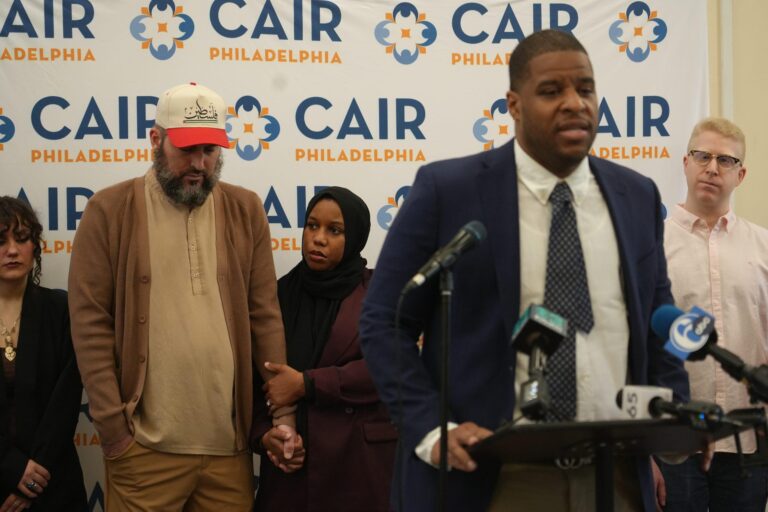Philadelphia Educator Challenges School District Over Palestine Curriculum Discrimination
Allegations of Bias in Handling Palestinian History Lessons
A seasoned teacher within Philadelphia’s public school system has initiated legal action against the district, accusing administrators of discriminatory conduct related to the teaching of Palestinian history and issues. The educator, who remains unnamed due to the ongoing litigation, contends that district officials have actively suppressed and censored curriculum content that presents Palestinian perspectives, fostering a hostile professional environment. Court filings reveal that attempts to incorporate balanced narratives about the Israeli-Palestinian conflict were met with excessive scrutiny and disciplinary actions not imposed on other geopolitical topics.
The complaint outlines several critical concerns:
- Insufficient administrative backing: The district allegedly failed to support the teacher following objections from certain parent groups.
- Disproportionate disciplinary measures: The educator reports receiving formal reprimands for lessons on Palestine, whereas similar critiques on other international subjects did not provoke such responses.
- Restriction of academic freedom: The teacher claims that lesson plans addressing Palestinian narratives and human rights issues were curtailed.
| Concern | Reported Effect |
|---|---|
| Curriculum Suppression | Limited classroom discourse on Palestinian topics |
| Unequal Discipline | Targeted sanctions against specific lessons |
| Hostile Work Environment | Increased stress and diminished teacher independence |
Analyzing District Policies on Political Content and Educator Autonomy
The school district’s approach to political subject matter in classrooms has sparked significant controversy, centering on the challenge of balancing neutrality with the protection of academic freedom. Official policies instruct teachers to refrain from promoting particular political viewpoints, yet critics argue these rules are inconsistently enforced. The lawsuit suggests that limitations on discussing Palestine arise more from political pressures and community backlash than from educational standards, raising concerns about the inadvertent suppression of vital global issues.
Detractors highlight the ambiguity in defining what constitutes acceptable political content, leaving educators vulnerable to subjective interpretations. Advocates for academic freedom call for policies that empower teachers to explore complex geopolitical topics with nuance and empathy. The following table contrasts the district’s guidelines with core academic freedom principles endorsed by education advocacy organizations:
| Policy Aspect | District Directive | Academic Freedom Ideal |
|---|---|---|
| Content Limitations | Prohibition on explicit political endorsements | Encouragement of diverse viewpoints exploration |
| Teacher Discretion | Restricted; subject to administrative approval | Broad; teachers lead classroom discussions |
| Managing Controversy | Avoidance of contentious debates | Fostering critical and respectful dialogue |
Consequences for Classroom Dynamics and Student Engagement
The dispute has heightened tensions within the school community, disrupting the educational environment and impacting both faculty and students. Many teachers report feeling constrained in their instructional choices, resulting in a noticeable decline in open dialogue on the subject. This atmosphere has suppressed diverse perspectives and caused some students to withhold their views due to fear of reprisal or misunderstanding. Additionally, students with personal or familial ties to Palestine may feel marginalized, perceiving the resistance to such lessons as a negation of their identities.
Notable effects on classroom climate and student attitudes include:
- Decreased participation in discussions about international conflicts and human rights
- Growing divisions among students along cultural and political lines
- Elevated anxiety linked to perceived censorship
- Strained interactions between students, educators, and administrators
| Factor | Pre-Dispute | Post-Dispute |
|---|---|---|
| Teacher Independence | Encouraged exploratory teaching | Subject to increased administrative control |
| Student Involvement | Open and varied | Guarded and selective |
| Classroom Atmosphere | Inclusive and engaging | Contentious and tense |
| Emotional Climate | Generally stable | Marked by stress and uncertainty |
Strategies for Developing Balanced Educational Policies and Community Engagement
Addressing the challenges of teaching sensitive geopolitical topics like the Palestinian narrative requires educational leaders to craft clear, transparent policies that safeguard academic freedom while honoring diverse community values. These policies should be formulated collaboratively, involving educators, parents, and community representatives to ensure a balanced representation of perspectives. Essential to this effort is providing teachers with ongoing professional development focused on navigating controversial subjects with sensitivity and fostering critical thinking without alienating stakeholders.
Schools should also implement structured communication channels to articulate their educational goals clearly, reducing misunderstandings and conflicts. Recommended actions include:
- Establishing interdisciplinary curriculum committees tasked with regular reviews for cultural inclusivity and factual integrity.
- Offering opt-in or opt-out options for parents concerned about specific content.
- Facilitating restorative dialogue sessions to address community concerns constructively.
- Creating feedback mechanisms such as surveys and forums to continuously refine teaching methods.
| Focus Area | Suggested Initiative |
|---|---|
| Curriculum Review | Diverse panels conducting periodic content assessments |
| Parental Involvement | Transparent opt-in policies and community forums |
| Teacher Development | Continuous training on sensitive topics and conflict management |
| Community Relations | Restorative conversations to foster mutual understanding |
Conclusion: Navigating the Intersection of Education, Politics, and Community Values
As this legal case progresses, it underscores the broader national conversation about academic freedom, curriculum content, and how educational institutions respond to politically sensitive subjects. The outcome may influence future policies and practices across school districts, shaping how educators approach complex international issues in classrooms. Ongoing coverage by prismreports.org will monitor developments in this pivotal story.








